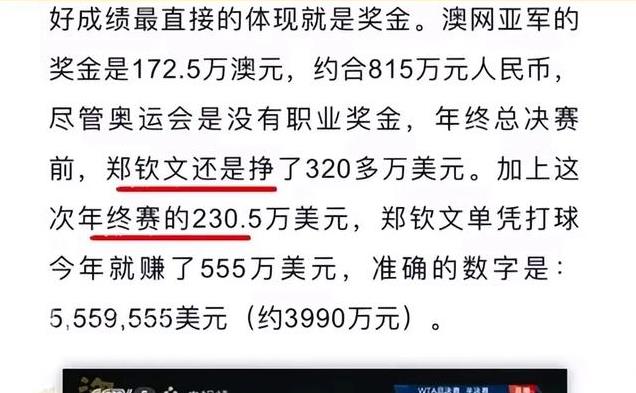In response to the decision made by WTT World Table Tennis regarding Fan Zhendong and Chen Meng's withdrawal from the world rankings, there has been widespread opposition. Currently, regardless of whether they are supporters of Fan Zhendong or not, netizens have chosen to stand with Fan Zhendong, expressing their dissatisfaction with WTT together.
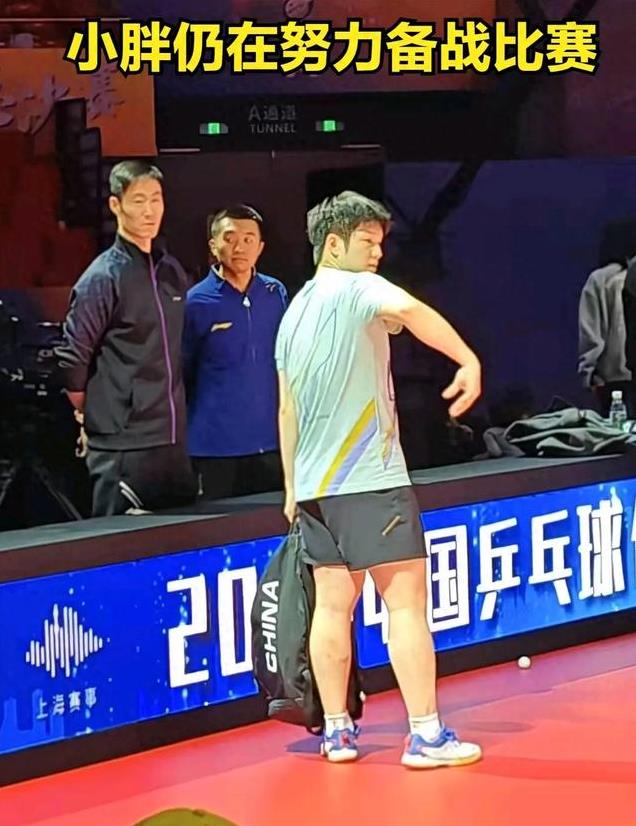
Furthermore, foreign athletes such as Simon Gauzy and the Lebrun brothers have also openly expressed their dissatisfaction with WTT's tournament system, which they liken to a霸王条款 (tyrannical clause).
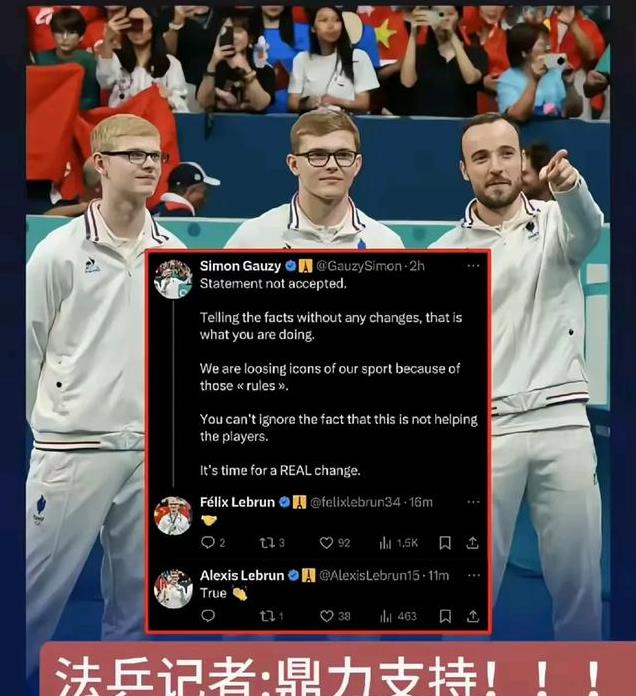
The media is not holding back, directly criticizing WTT's (World Table Tennis Professional League) tournament system. They say that the system is flawed, especially in terms of how little money the athletes earn, which is simply not enough for them to spend.

The prize money system for competitions is too stingy; top players work tirelessly in matches, only to find that the money they earn doesn't even cover the cost of participating. This is like forcing people into a corner! Athletes have to make a choice: either give up the competition with a heavy heart and still face a fine, or go all out, risking emptying their pockets to participate in the hope of playing well enough to earn something back.
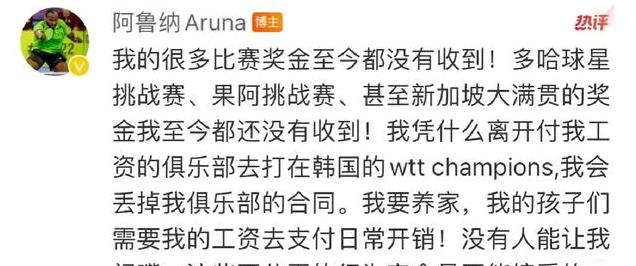
As a result, athletes become physically and mentally exhausted, affecting the spirit of sports, creating a vicious cycle. French media also mentioned what Fan Zhendong said, suggesting that the situation is more complicated than what WTT itself claims, and asked if the Chinese Table Tennis Association quietly helped pay fines for the athletes.
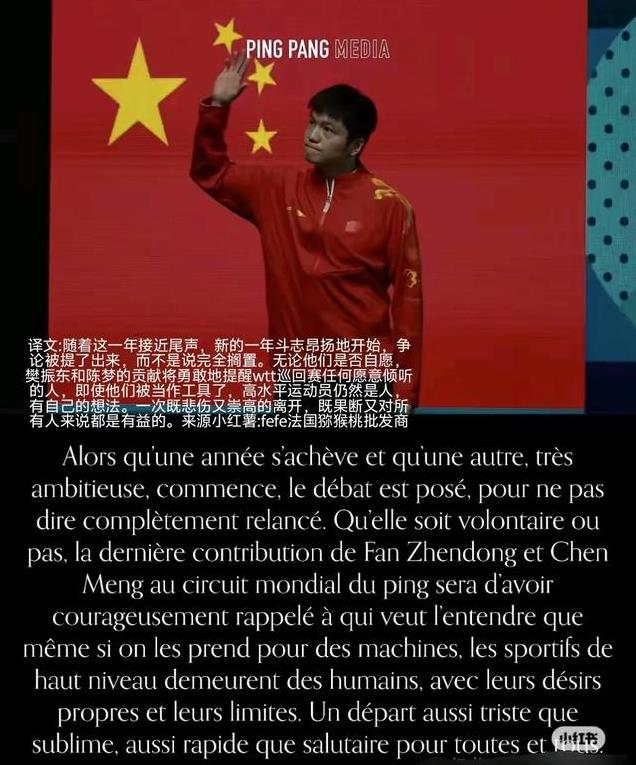
Especially since both the head of the Chinese Table Tennis Association and WTT is Liu Guoliang, this makes people wonder if there is a conflict of interest and if transparency is lacking.
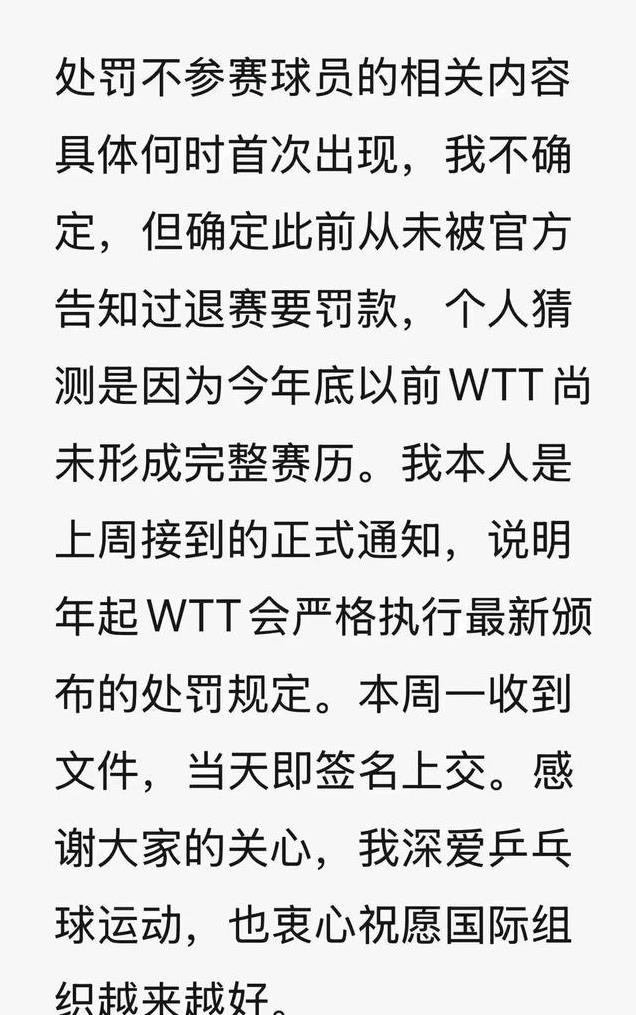
Our country's CCTV quickly followed up on the report. They compared tennis and table tennis, saying that although the ATP1000 tennis tournament also requires top players to participate, it has a veteran exemption policy and high prize money, giving players motivation to compete and making the matches more exciting. However, in our table tennis, WTT's system makes athletes very passive, earning less money and having poor protection. How can this be?
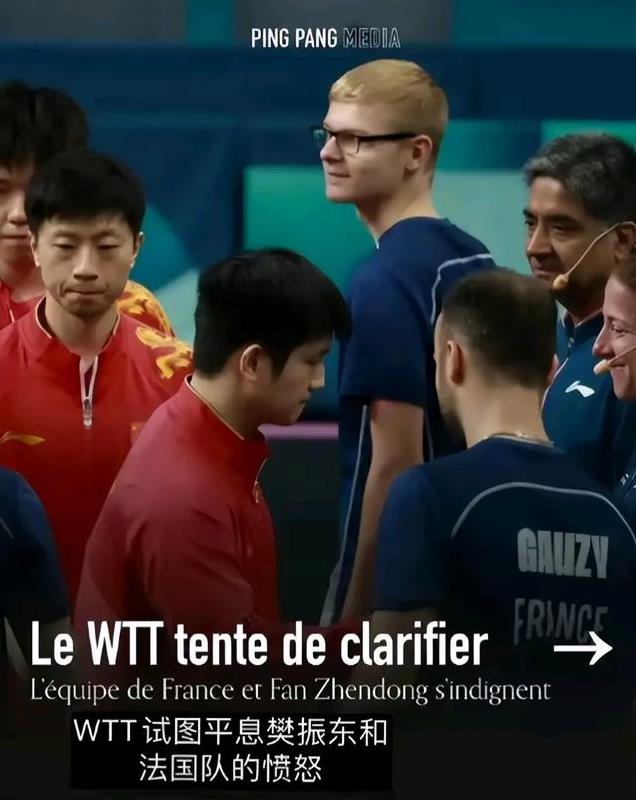
Online, it's even more lively, with netizens and foreign table tennis players speaking out, expressing their dissatisfaction with WTT's tournament system. They believe that WTT's system is too harsh and does not pay attention to the basic rights and long-term development of athletes,
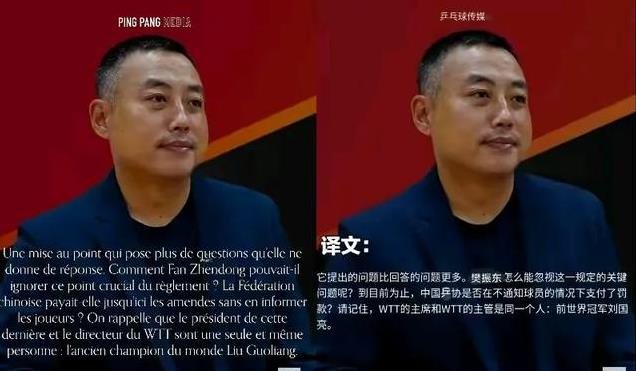
This short-sightedness is not good for the global development of table tennis. Some netizens say that the system needs to be changed to improve treatment; others say that supervision needs to be strengthened, and competitions need to be fair and transparent.
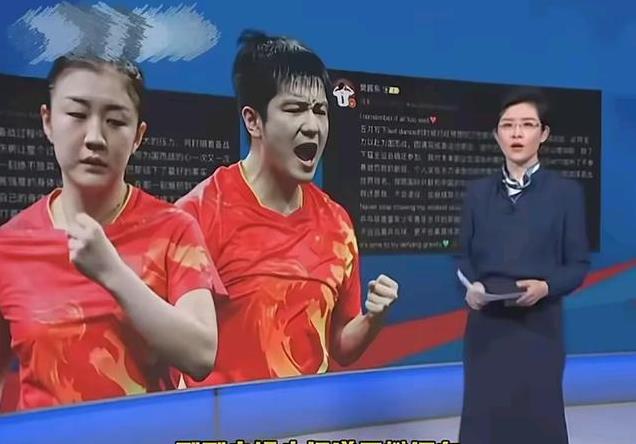
This series of actions has given WTT and the table tennis world a wake-up call. It tells us that during the commercialization process, the rights of athletes must be taken seriously, and relevant parties must take action urgently to change the system to make it more reasonable. If WTT can listen to everyone's opinions and change its problems, then there is hope for the development of table tennis.

This incident also serves as a reminder to the global sports community, making us realize that respecting athletes and protecting their rights is the key to the long-term development of the sports industry. In summary, this time WTT has encountered a tough challenge, so let's wait and see how the situation develops!
